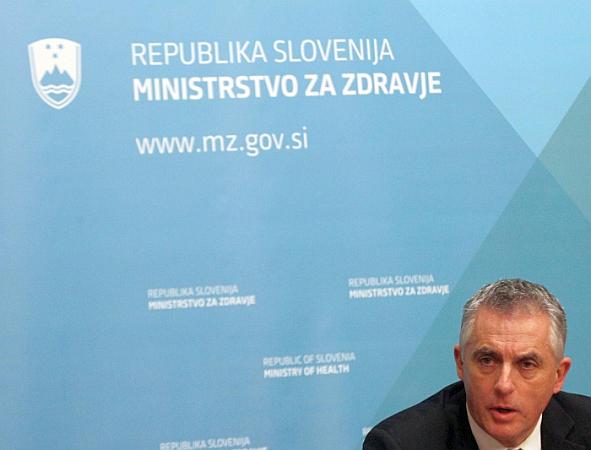

Stanko Stepišnik resigned from the position of the minister for economic development and technology last week. Someone ordered these accusations against me, and by resigning I’m saving my company so that it can work in peace, Stepišnik stated at the time. He had been elected to the parliament through the Positive Slovenia list, where he can now return. Only five days later, the health minister Tomaž Gantar from the DeSUS coalition party submitted his irrevocable resignation, stating his powerlessness against health care lobbying and corruption as the reason.
Political analyst Laris Gaiser considers his decision to be a positive thing. “The minister warned of the problems and wanted to do something good in the system,” said Gaiser in a statement for MMC. The resignation is a message that the situation in the health care system urgently needs to change, and soon. Neither Gantar’s nor Stepišnik’s resignation will have a big impact on the government, argues Gaiser. The issue with Gantar was not a case of mistrust or poor performance of the minister, and Stepišnik stepped down due to external pressure.
Pribac: Resignation is an opportunity for the government
It’s true that every change brings some instability to the system, but at the same time, it serves as an opportunity for more solid and better operation, notes Igor Pribac. In his opinion, the two resignations are precisely that: not a threat to the existence of the government, but an opportunity.
There’s a sort of a general consensus that the resignations come from two ministers who haven’t been particularly successful in their functions, continues Pribac. This is especially true in the case of Stepišnik, who was “relatively unnoticeable”, whereas Gantar had to “face huge problems and disagreements about this very important system” where no consensus about the changes has been reached.
“It’s my belief that the second resignation is an opportunity for the government to give the position to someone who is ready to tackle this huge challenge,” states Pribac.
Through the Corda Orodjarna company, Stepišnik is the main owner of EMA – Orodjarna, a company that won EUR 348,000 at a tender issued by the ministry of economy. The tender had been opened prior to Stepišnik’s ministerial appointment, but the decision about the winners of the tender was made when Stepišnik had already taken over the position. The minister claimed he had stepped aside from the decision-making process in the tender.
As Gantar explained, he felt his political power within the coalition was too small to solve the problems the way he had intended. The latest major complication was related to the interventionist health bill, which planned to fill the weak health fund by raising the price of health insurance. The minister was met by strong opposition of the Civic List (DL), which claimed this could add additional pressure to the overburdened economy.

































































